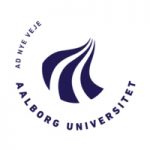项目介绍
About the course
The DPhil in Area Studies offers the opportunity to undertake a doctoral project dedicated to the study of a specific country or region, or else to compare more than one region, using social science approaches whilst also generating theories and propositions that are of value across regions.
The Oxford School of Global and Area Studies is recognised as the top centre for area studies in the world, carrying out cutting-edge research within a vibrant and exciting environment. As a DPhil student at the school, you will have access to outstanding research projects, seminar series, workshops and conferences and will have the chance to develop your work alongside academic staff who are experts in their fields.
Admission to this course is via one of seven strands and you will need to select one stand before starting your application. The strands are:
- DPhil in Area Studies (Africa)
- DPhil in Area Studies (China)
- DPhil in Area Studies (Japan)
- DPhil in Area Studies (Latin America)
- DPhil in Area Studies (Middle East)
- DPhil in Area Studies (Russia and East Europe)
- DPhil in Area Studies (South Asia)
No matter which strand you choose the course follows the same general structure, which is outlined in more detail below.
Your first year will include participation in the first-year DPhil seminar series and you will have the opportunity to attend other courses offered by the school as identified in your Training Needs Analysis. Your Training Needs Analysis will be discussed with your supervisor and reviewed on a regular basis. During this year, you will focus on developing your research questions, conceptual framework and methodological approaches for your thesis. You will usually have been admitted as a Probationer Research Student (PRS) and should expect to be submitting material for your Transfer of Status as the academic year comes to an end, which will end your probationary period as a research student.
In your second year you will continue to implement your research plan through theoretical engagement and/or fieldwork, data collection and analysis.
If you intend to undertake fieldwork as part of your research, you will be expected to attend a fieldwork safety course available through the Social Sciences Division.
Your third year requires you to participate in at least one conference, in the UK or internationally, presenting your work to a non-specialist audience, and to submit materials for Confirmation of Status during your seventh term as well as working towards the completion of your thesis.
Supervision
For this course, the allocation of graduate supervision is the responsibility of the Oxford School of Global and Area Studies and it is not always possible to accommodate the preferences of incoming graduate students to work with a particular member of staff. Under exceptional circumstances a supervisor may be found outside the Oxford School of Global and Area Studies.
You will be assigned one or two supervisors, depending on your thesis subject. These supervisors will advise and guide you as you progress through the different stages of your research, meeting with you on average 2-3 times per term. Ongoing support will be provided by your supervisor(s) during your studies and feedback will be received from peers and faculty members at the first-year DPhil seminars. Written feedback will be provided as part of the Transfer and Confirmation of Status procedures and after the final viva voce.
Assessment
Candidates for the DPhil are normally admitted with Probationer Research Student (PRS) status. As a PRS, you will develop your research proposal and skills, and produce a draft section or sections of your thesis, in order to apply for Transfer of Status which will end your probationary period as a research student. Students who are successful at transfer will also be expected to apply for and gain confirmation of DPhil status, normally within nine terms of admission, to show that your work continues to be on track. Both milestones normally involve an interview with two assessors (other than your supervisor) and therefore provide important experience for the final oral examination.
Once you have been admitted to full DPhil status, you are normally expected to complete your studies by the end of your ninth term as a doctoral student.
After submitting your finished thesis, you will be required to attend a viva voce (viva for short). The viva will be held by two examiners, one internal to the University and one external. The purpose of this is to enable the Examiners to assure themselves that the thesis is your own work, to provide you with an opportunity to defend your thesis and to offer any necessary clarifications. A final copy of the thesis, incorporating any corrections, will be submitted after the viva.
Graduate destinations
This course is completing its third year and there are no alumni as yet. However, area studies graduates have found employment in many and diverse fields including business, finance, law, civil service, journalism, government and industry.
Many OSGA graduates have also undertaken further research into subjects linked with area studies and have pursued successful careers in the academic world and education.
Changes to this course and your supervision
The University will seek to deliver this course in accordance with the description set out in this course page. However, there may be situations in which it is desirable or necessary for the University to make changes in course provision, either before or after registration. The safety of students, staff and visitors is paramount and major changes to delivery or services may have to be made in circumstances of a pandemic (including Covid-19), epidemic or local health emergency. In addition, in certain circumstances, for example due to visa difficulties or because the health needs of students cannot be met, it may be necessary to make adjustments to course requirements for international study.
Where possible your academic supervisor will not change for the duration of your course. However, it may be necessary to assign a new academic supervisor during the course of study or before registration for reasons which might include illness, sabbatical leave, parental leave or change in employment.
For further information please see our page on changes to courses and the provisions of the student contract regarding changes to courses.
录取要求
-
a master’s degree with distinction in a relevant subject which includes appropriate research methods training; and
-
a first-class or strong upper second-class undergraduate degree with honours in any relevant subject.
-
Where a distinction has not been achieved for the master’s degree, an overall grade of 67% or above in the course examinations and a distinction in the thesis element will be considered.
联系方式
电话: +44 1865 270000相关项目推荐
KD博士实时收录全球顶尖院校的博士项目,总有一个项目等着你!






